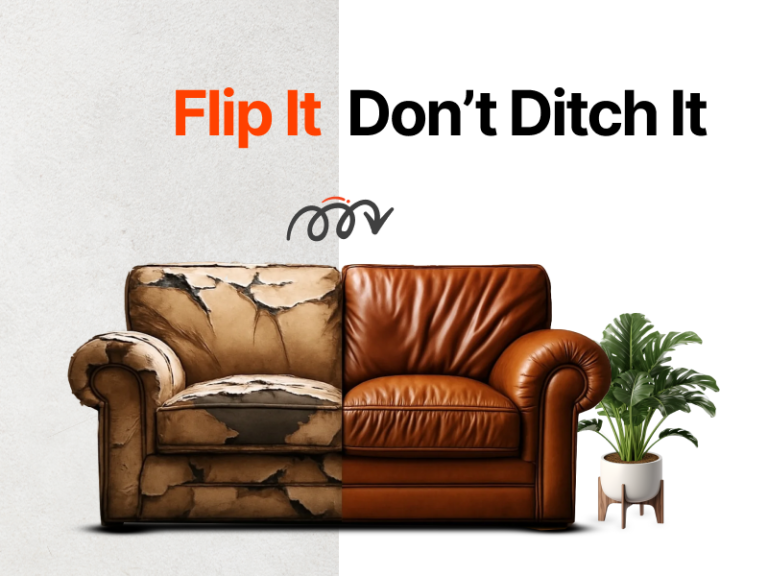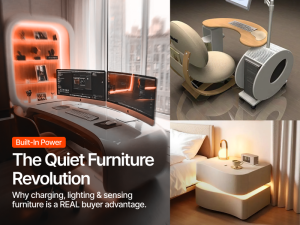In a small Brooklyn workshop, Emma Johnson is transforming trash into treasure. What began as a weekend hobby is now a booming business, with eco-conscious consumers seeking out her unique, upcycled furniture pieces. Emma is part of a growing movement of furniture flippers who are driving sustainability and creativity in the industry—a trend that aligns perfectly with the values at the heart of Hive Furniture Show.
Furniture flipping, which involves buying second-hand or discarded furniture, refurbishing or upcycling it, and reselling it, has gained significant traction. It’s not just a hobby anymore; it’s a flourishing business model that meets the increasing demand for sustainable, affordable, and unique furniture. For the Hive Furniture Show, where innovation meets industry insights, flipping offers a fresh look at the future of furniture.
The Sustainability Shift
As the global furniture industry pivots toward sustainability, flipping has become a key method for reducing environmental impact. Flipping offers a solution by extending the life cycle of existing furniture, reducing the need for new materials, and promoting a circular economy.
Innovative companies like Spain’s Gravity Wave, which produces furniture from ocean plastics, are showcasing how upcycling is transforming the industry (StartUs Insights). At HIVE 2026, we will highlight how businesses are embracing greener practices, with flipping leading the charge by turning discarded pieces into stunning, sustainable designs.
Economic Opportunity
Furniture flipping isn’t just good for the planet—it’s a powerful economic driver, particularly for small businesses and startups. With minimal investment, entrepreneurs can tap into the booming second-hand market. Digital platforms like Etsy and Instagram have opened up new opportunities for flippers to reach wider audiences and capitalize on the growing demand for unique, affordable furniture (Furniture News) (Houzz).
At Hive Furniture Show, we celebrate these emerging trends that blend business opportunity with sustainability, and furniture flipping is a perfect example of how eco-friendly business practices can generate economic growth.
Creativity Meets Customization
Flipping also responds to the rising demand for personalization and creativity in home furnishings. Unlike mass-produced items, flipped furniture offers a unique, customized touch that resonates with buyers seeking authenticity. As the 2025/2026 trend forecasts show, consumers are gravitating towards custom designs that reflect their individual style (Houzz).
From modern pastels to tactile textures, furniture flippers are redefining old pieces to align with contemporary tastes. At HIVE, we celebrate this fusion of creativity and sustainability, showcasing how flippers are transforming the ordinary into extraordinary.
Looking Ahead
As we approach HIVE 2026, furniture flipping continues to be an exciting trend to watch. With technology like 3D printing and AI enabling more efficient and creative processes, flipping is set to remain at the forefront of innovation (StartUs Insights). For exhibitors and attendees at HIVE 2026, flipping presents dynamic opportunities to explore the future of sustainable and customized design.
Conclusion
Furniture flipping is more than just a trend—it’s a movement reshaping the future of the furniture industry. At HIVE, we’re proud to spotlight this transformative practice as part of our commitment to innovation and sustainability. Together, we can reimagine and revitalize the furniture industry, one flipped piece at a time.
Stay connected with Hive Furniture Show on LinkedIn for more industry insights and event updates as we lead the conversation on the future of furniture.




